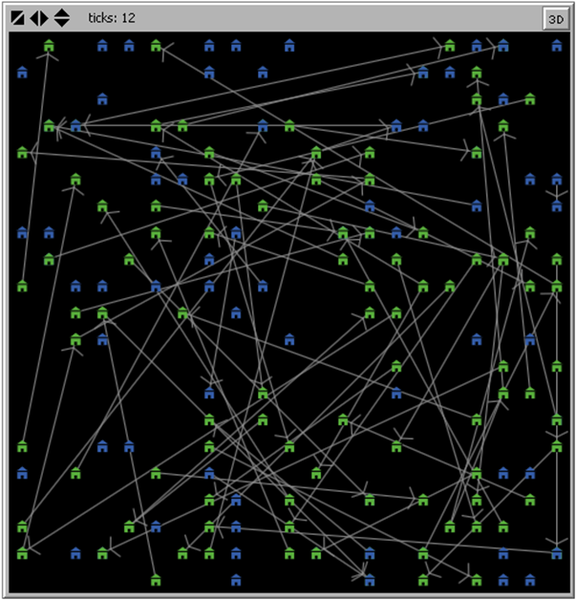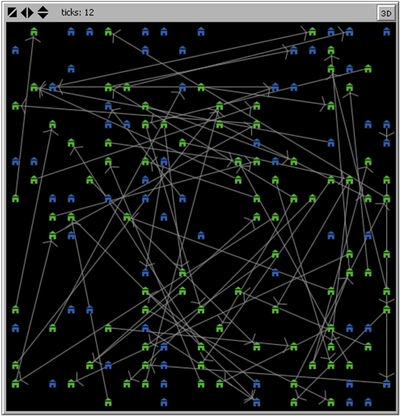Exploring organizational learning in innovation networks. An agent-based model 1.0.0
The model’s underlying basic assumption is that firms need to innovate in order to survive in their market. Developing novel knowledge for potential innovations by collaborating with other firms is thus the intrinsic motivation of each firm participating in the innovation collaboration. Each firm searches for optimal exploration which is expressed by the choice of its collaboration partner. It is assumed that there is an optimal cognitive distance for each firm to a potential partner in the model. If reached by a firm, it might increase the probability of successful novel knowledge creation at the organizational level. Firms will form and sustain only partnerships which are beneficial for both partners, i. e., if the firm’s capacity is high enough to grasp the partner’s offered knowledge. If a firm is successful in its search for optimal exploration, and thus in novel knowledge creation, it will add the new knowledge to its existing knowledge stock and learn. Partners will separate when their goals are not fulfilled any more or the partnership naturally dies.

